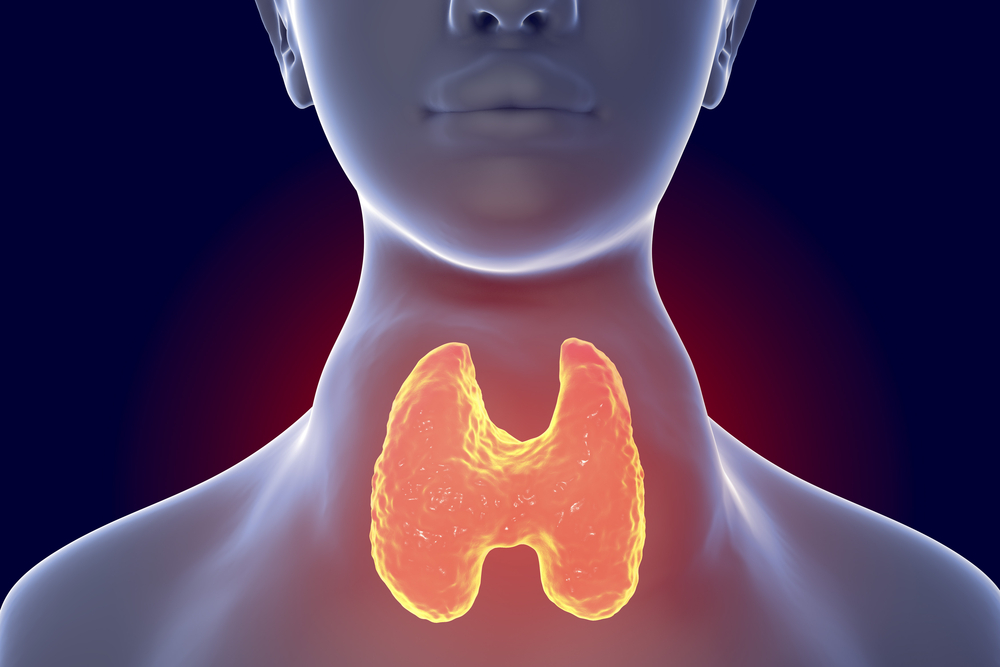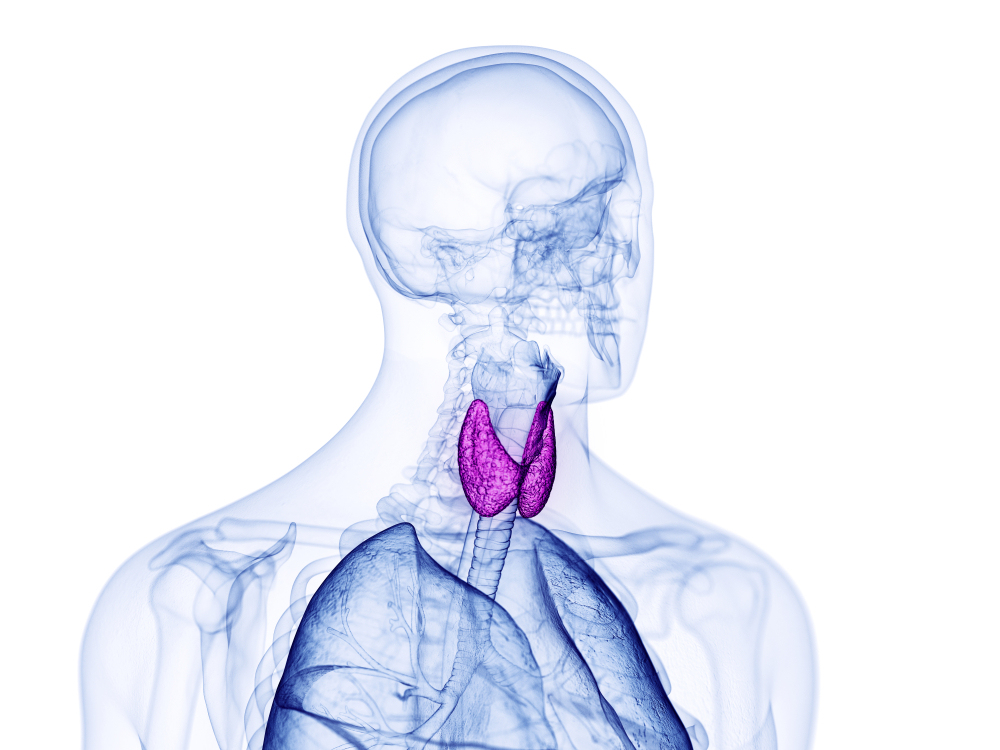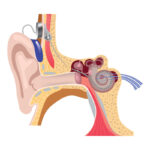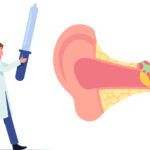The Hypothyroidism-Tinnitus Connection: Going Big with the Latest Research
There are several symptoms of hypothyroidism, including vertigo, weight gain, and tinnitus. In addition, approximately 40% of people with hypothyroidism experience sensorineural hearing loss in both ears. Tinnitus is also a symptom of other medical conditions, such as allergies and impacted earwax. Often, the symptoms of hypothyroidism can be confused with other types of hearing loss.
Hyperthyroidism

The thyroid gland produces hormones that regulate the body's metabolism. This butterfly-shaped organ sits just below Adam's apple and along the front of the windpipe. When it becomes overactive, the thyroid produces too much of the hormone thyroxine, which leads to a variety of symptoms, including weight loss, anxiety, irritability, and shaky hands. People with hyperthyroidism also experience tinnitus due to hypothyroidism. The tinnitus that is associated with hyperthyroidism is pulsatile in nature.
The current study was designed to examine the relationship between hypothyroidism and tinnitus in patients with both conditions. Approximately 4% of patients with hypothyroidism also experience tinnitus, with a 50% chance of having tinnitus. However, the findings are not conclusive. The study's limitations include:
Patients with hypothyroidism may also experience sudden sensorineural hearing loss (SSNHL), a condition in which there is no warning signs. SSNHL occurs suddenly and within 72 hours and requires immediate medical attention. Early diagnosis is critical, as 85 percent of people who suffer from SSNHL can regain their hearing. Treatment of hypothyroidism is crucial in recovery from SSNHL. More patients who have high levels of thyroid hormone are more likely to recover from SSNHL.
The risk of developing tinnitus is higher in patients with hypothyroidism. This condition is more common in women and is associated with an increased risk of autoimmune ear disease. A recent longitudinal study suggests that hypothyroidism is associated with an increased risk of tinnitus. In addition to its effect on hearing, it can also affect the cochlea, which is the snail-shaped organ in the inner ear that converts sound vibrations into nerve impulses.
Hypothyroidism
Patients with hypothyroidism are at increased risk for developing tinnitus. It's associated with hearing loss and vertigo and is associated with an increased risk of insomnia. But what is the relationship between hypothyroidism and tinnitus? How can you detect this condition? Read on to learn more. And don't forget to talk to your doctor!
In hypothyroidism, there are a variety of causes of tinnitus. It can be triggered by a number of factors, including age-related hearing loss, head and neck tumors, high blood pressure, sinusitis, and thyroid dysfunction. Tinnitus caused by hypothyroidism is a frequent side effect, resulting in reduced energy, weight gain, and depression.
One study found that the prevalence of tinnitus was nearly twice as high among those with hypothyroidism as in those with healthy thyroid conditions. However, there was a gender predilection for the condition. The study's male-to-female ratio was 0.08:1, with nine cases of tinnitus being diagnosed in one ear and two in the other.
Hyperthyroidism can be caused by a variety of other conditions. This disorder affects 1% of the population, and it causes a rapid increase in the body's metabolism. The symptoms of hyperthyroidism include irritability, weight loss, panic disorder, and an increased heart rate. In addition to tinnitus, patients with hypothyroidism may also experience other symptoms, including vertigo and a racing heart.
The main symptom of hypothyroidism is hearing loss, which is typically gradual and gradually developed over several years. In addition to hearing loss, hypothyroidism can also cause ear sensitivity, a condition commonly associated with autoimmune thyroid disease. Fortunately, tinnitus can be treated successfully and effectively. People with tinnitus should consult with a hearing care professional to determine if hypothyroidism is the cause. If you're unsure whether this is a condition or not, it's always helpful to share your experience and educate yourself.
Pituitary dysfunction
The most common cause of tinnitus in patients with hypothyroidism is pituitary dysfunction. The pituitary gland is the largest gland in the brain, and a pituitary adenoma or tumor is the most common type. Both are often silent and do not produce any symptoms until they compress the nearby nerves. Non-secretory adenomas are benign and rarely cause symptoms. They are often detected after they become large. Other symptoms of pituitary dysfunction include a loss of vision, excessive thirst, and frequent urination.
A pituitary tumor can be a difficult diagnosis for both patients and physicians. The first step in treating the condition is to get a proper diagnosis. Your doctor can order various tests to confirm the diagnosis. If your doctor suspects that your tinnitus is caused by hypopituitarism, he or she will prescribe hormone replacement to treat the condition.
Other symptoms of pituitary problems can include social and psychological problems. Children may not grow properly as a result of the absence of growth hormones. Teenagers and young adults may experience developmental delays, and children may show symptoms such as a delayed growth rate or a failure to develop sexually. Semen analysis may also be recommended to preserve a person's reproductive potential.
Secondary hypothyroidism is a result of a failure of the pituitary gland to secrete hormones. Foreign substances or an immune system infiltration may be responsible for this condition. Hypothyroidism can affect all functions of the body. It may also cause mental sluggishness, depression, and even coma. In severe cases, hypothyroidism can lead to a life-threatening condition called myxedema.
Hashimoto's disease

While the symptoms of Hashimoto's disease and hypothyroidism may seem isolated, they are actually interrelated. Both conditions are caused by inflammation and a compromised immune system. As a result, nutrient deficiencies in the body can trigger a range of symptoms including sensitivity to harmless substances. In addition to the food components that are affected by Hashimoto's, a person's stress levels may play a major role.
Although no single cause has been identified, researchers have linked both disorders to tinnitus. In a study of 21 million people who had tinnitus, twenty-six percent reported experiencing anxiety. Furthermore, a study published in the Journal of Thyroid Diseases reported that poor sleep patterns may contribute to the severity of tinnitus. Another study conducted by Bhatia and colleagues found that hypothyroidism is associated with tinnitus in five out of seven hypothyroid patients.
Thyroid antibodies and Hashimoto's disease are often found in identical twins, though concordance rates vary among separated twins. Nevertheless, despite the high concordance rate between identical twins, some cases can be associated with unrelated autoimmune diseases, such as Graves' disease and autoimmune disorders. Genetic predisposition is a risk factor for the development of Hashimoto's disease and hypothyroidism, while certain lifestyle factors can act upon this trait and cause the autoimmune cascade.
Patients with Hashimoto's disease are at higher risk of developing tinnitus, as is anyone with autoimmune ear disease. The thyroid hormones may affect the cochlea, the snail-shaped organ in the inner ear that converts sound vibrations into nerve impulses. A decrease in thyroid hormone levels may lead to a deterioration in the cochlea's development.
Sensorineural hearing loss
There is a connection between hypothyroidism, tinnitus, and hearing loss. This relationship was first discovered in 1907. Both conditions are related but they are not necessarily linked. Thyroid disease may cause tinnitus and hearing loss, but it can also affect the auditory nerve. Treatment of thyroid disease may also improve hearing. Fortunately, treatment for hypothyroidism can help patients with hearing loss.
In the event of a connection between the two, a hearing test may be necessary. Traditionally, this test is performed with a 512 or 1,024-Hz tuning fork. The Weber test is a diagnostic procedure in which a tuning fork is struck on the patient's forehead, nose, and chin. The patient is asked to indicate which ear is louder. The Weber test is used to identify lateralization of sound, conductive hearing loss, and sensorineural hearing loss. In addition to the Weber test, a hearing expert may perform a Rinne test in order to determine if there is equal deafness in both ears.
There are various causes of tinnitus, including unhealthy lifestyles, exposure to loud noises, and chronic stress. Treatment of hypothyroidism may improve tinnitus, as well as a number of other symptoms of the condition. In the meantime, however, tinnitus is a symptom of hypothyroidism, not a diagnosis.
Because the diagnosis of hypothyroidism is complicated, patients with tinnitus should seek medical care as soon as possible. While treatment for hypothyroidism is available for hypothyroidism, doctors will want to monitor the condition closely to ensure the best outcome for both the patient and the physician. There is a link between thyroid disease and tinnitus.
Sources
- National Institute on Deafness and Other Communication Disorders. Tinnitus. Retrieved from https://www.nidcd.nih.gov/health/tinnitus
- American Thyroid Association. Hypothyroidism. Retrieved from https://www.thyroid.org/hypothyroidism/
- “Hashimoto's Disease.” Mayo Clinic. Accessed April 27, 2023. https://www.mayoclinic.org/diseases-conditions/hashimotos-disease/symptoms-causes/syc-20351855.







